Stronger Than Coffee: Part 2
In conversation with Ericka Mora
Ericka Mora during the in-person workshop with Bean Voyage and Needle and Frame. Credit: Alexa Romano
This past year, as part of a collaboration with Needle and Frame, some of the Bean Voyage coffee producers created short films about their stories. You can learn more about Need and Frame, a non-profit artist collective, in our latest blog.
In preparation for the release of the short films shot by Bean Voyage coffee producers as part of a collaboration with Needle and Frame, we spoke to one producer involved, Ericka Mora, who hails from Tarrazú, Costa Rica, and is a longstanding partner of Bean Voyage.
Can you tell us a bit about your farm and how you got into coffee?
We have a small farm of 3.5 acres, and we live here on the farm. It used to belong to my father-in-law, and now my husband has inherited it. He started helping out on the coffee farm when he was 12 and still at school. My father is also a coffee farmer, so I’ve been surrounded by coffee since I was a child.
How did you get involved in the Needle and Frame project?
When I received the invitation from Bean Voyage, the idea immediately appealed to me. I thought my story could be interesting for the project, and so I accepted the challenge!
What has been the best thing about the project?
The most interesting thing has been learning about something completely new. This was different from making a short film where a camera crew comes and films you: we had to start from scratch, filming it all ourselves and deciding which story we wanted to tell, and how. We always felt supported by the Needle and Frame team, but we [the producers] have had to develop our stories ourselves.
What have you learned through the process?
It has been exciting to learn how to handle a camera and all of the details like which angles to use. Now, when I look back at the first parts I shot, I can see that the angle is wrong, or something shouldn’t be in the frame, or that the camera should be closer or further away. I have been learning, and enjoying learning, all of these technical details, as they are things which I hadn’t even considered before.
Have your family and wider community helped or participated?
My family has helped me in every way, from not disturbing me when I’m in a meeting, to helping me film takes. For the moment, it is very much a private, family story, and so the wider community has not been too much involved, due to the nature of my story.
What do you hope people will take away from watching the film?
In my short film, I attempt to tell my story in two parts: before the coffee project, and after. Before I started working in coffee, I became ill with cancer and ultimately lost a leg. I used to have a different job, which I lost, and it was a very difficult time. Then we came up with the idea of setting up a micro-mill on our farm, adding value to the coffee we were producing, and being able to export it. That transformed my life. It made me happy again, it gave me work, and it made me feel important by making up for what I had left behind. So, the message I want to convey to people is that it is possible to overcome difficulties. Rather than my story being a reason for people to feel sorry for me, I want to show that there’s hope, happiness, strength, work, and family on the other side. Those are the key ideas for me.
Tell us about one of your favorite days of filming.
When I first started filming, I was doing it quickly and without much technique. So, when I looked back at those takes, I didn’t like them at all. But one day, I had the opportunity to go and film my husband on the coffee farm. It was very peaceful, and there was time to enjoy filming and to look for what I wanted to film. Afterward, when I re-watched the takes, I thought they were very pretty, so I felt happy that I had been able to produce a good result and improve my technique.
How do you see the future of coffee, and specifically of women in coffee, in Costa Rica?
I feel that coffee is opening up more and more to women as a sector, in terms of commercialization, branding, doing business, and importing and exporting. Many women even have their own farms (now). However, the work involved in producing coffee and looking after the farm is very hard, and at the moment there are few people who are willing to do that. So, I see there being two different futures for coffee: on the one hand, more openings for women who want to go into the commercial side, and on the other, fewer and fewer people producing coffee. But we need the coffee itself in order to keep all the cogs turning. Here in Costa Rica, for example, we need coffee pickers to come from Nicaragua and Panama, as we don’t have very many Costa Ricans working on coffee farms. So, I anticipate there being two situations, bringing improvements in the industry, and at the same time, growing challenges.
Written and Interviewed by Alice Mee.
Edited by Kayla Sippl.


